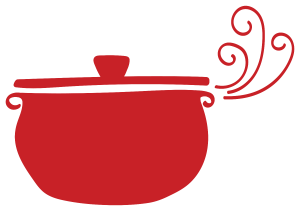Kitchen Table Chats #40 – Is the Fat on your Broth Rancid (& Doughnuts!)?
These are the show notes for a podcast episode recorded especially for members of The Kitchen Table – a membership community associated with our main show (Ancestral Kitchen Podcast). These supporters pay a monthly subscription to be part of the podcast community and in return receive monthly exclusive recordings (like this private podcast) along with lots of extra resources. You can get access to the recording and see how the community works by visiting www.ancestralkitchenpodcast.com/join
We had some problems with Andrea’s sound on this episode. please accept our apologies (and maybe call in spirits to help us overcome all these tech difficulties as soon as we can!).
What we covered:
- Wood-burning stoves, the Aga and the Rayburn
- Alison’s slow-cooker blew up!
- Soup and 1826 oat scones
- Deep dive: Is the fat on top of broth rancid?
- Dougnuts: a reading from Knead to Know by Dr Neil Buttery followed by a discussion on Andrea cooking doughnuts leading onto a discusion on bagels
Resources:
- Dr Neil Buttery’s book ‘Knead to Know’ in the UK bookstore (it’s not available in the US bookstore yet)
- Original post about fat on broth going rancid
- Rancid fat on broth – original post on Discord from Alison
Hanna’s response:
Alright, I’ve done a literature study and I’m back with the conclusion that the fat oxidising on the top of the broth is probably not an issue. Secondary conclusion is that what the food industry is trying to do with fats or to replace fats is absolutely terrifying and sometimes just bizarre.
Most of the papers linked to in the reply post refer to unsaturated fatty acids and are mostly concerned about using them for deep frying. These are fats that have at least one double bond and that double bond is vulnerable to being attacked. These are your typical seed oils, but also the omega-3 fatty acids for example. And I think I will shock nobody when I tell you that yes, seed oils will oxidise when used for frying.
But she also mentions a bit about hydrolysis. This is a bit different. The fatty acids we mention are usually in the form of triglycerides: three chains of carbon molecules stuck to a glycerol backbone. Hydrolysis is where they get chemically cut off the glycerol backbone and become free fatty acids. This can occur slowly over time or the enzyme lipase can accelerate this. You have lipase in your gut to allow you to digest fat. Lipase activity is why frozen breastmilk can get a funny taste/smell. Cheese making also sometimes makes use of lipase to generate more complex flavours. It seems pretty harmless in itself but free fatty acids are more prone to oxidation.
The papers cited in the article don’t at all come close to answering the question whether the fat on top of the broth is getting oxidised so I went searching a bit more to see what I could find.
1) Food industry papers seem equally concerned about oxidation happening in frozen or refrigerated meats as what is happening during cooking 2) All fats are going to oxidise to some degree; the more unsaturated the faster. Keep in mind that animals fed unsaturated fats will have more unsaturated fats in their own fat. 3) Unsaturated fats will oxidise faster than saturated fats 4 )Adding some sort of antioxidant/polyphenol/chlorophylls (i.e., plant bits) is quite protective against oxidation
In the second last link I found a reassuring point: “oils frequently used in food frying such as olive oil, sunflower oil, corn oil and seeds oil (sunflower, safflower and canola seed) were studied. The results show there is a decrease in unsaturation starting at 150 degrees C and becoming more pronounced at temperatures around 250 degrees C.” https://www.sciencedirect.com/science/article/abs/pii/S003991409900034X What does this mean? The “decrease in unsaturation” is the double bonds getting attacked = oxidation. And the fact that it’s starting at 150 C means its starting at waaaaay higher temperature than your broth (water boils at 100 C). Even your pressure canner is not reaching 150 C. Of course, more time at a lower temperature could also result in oxidation, but if our seed oils only start acting up at 150 C for 20-40 minutes, we probably don’t need to worry too much about our substantially lower temperature broths.
I also found a comparison of the oxidation of different unsaturated and saturated oils when frying French fries for 5 hours: “The rates of oxidation processes were compared on the basis of velocity constants and it was found that rapeseed oil oxidised 1.35 times faster than frying fat, 1.55 times faster than lard and 1.72 times faster than coconut oil.” https://pubmed.ncbi.nlm.nih.gov/31569911/ — see that the coconut oil is even more stable than the lard!? My guess is the polyphenols/antioxidants!
Another study compared the stability of saturated and partially unsaturated lard. The unsaturated lard surprisingly was more stable against oxidation! Why? Well the unsaturated lard actually had more α-tocopherol (a type of Vitamine E, an antioxidant)! https://pubmed.ncbi.nlm.nih.gov/29715665/. I also found a study using dragon fruit skin (why, I have no idea) to successfully stabilise fats in chicken nuggets. https://pubmed.ncbi.nlm.nih.gov/32180641/ . And quite a few studies trying to feed chickens more α-tocopherol to make their fats more stable when freezing for a long period and turning into various processed foods.
Oh and here is a handy study comparing the stability of different animal fats. Duck meat is the most unstable apparently – more unsaturated. https://pubmed.ncbi.nlm.nih.gov/31304473/
My take away from this is: put some veggies in your broth and don’t eat French fries fried in seed oils, especially old, reused seed oils.
Disclaimer: I’m not a lipid biochemist so if there is one lurking in the shadows of the AKP discord, please make your presence known and correct me 😉


